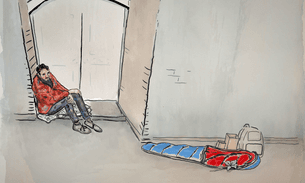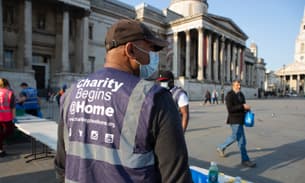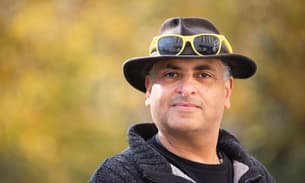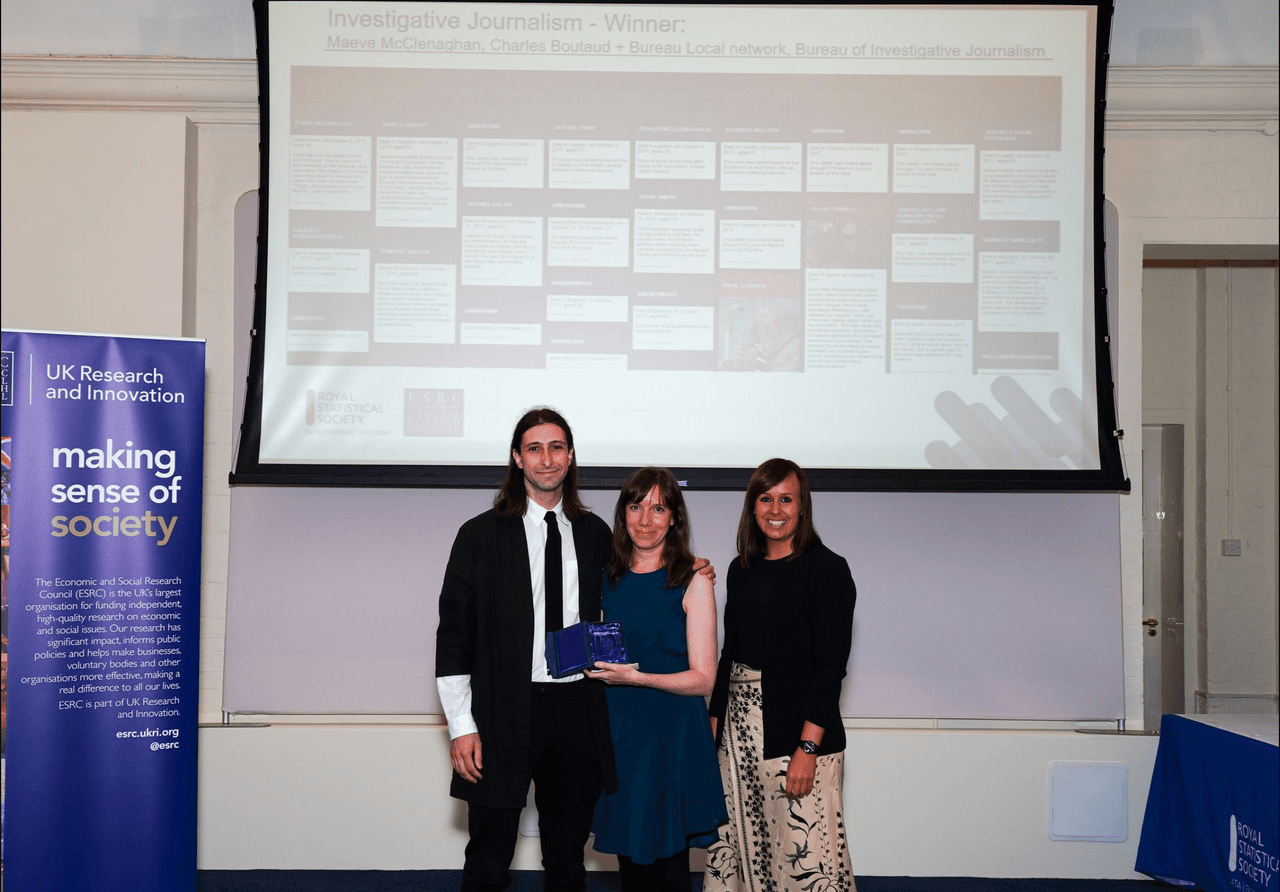
Dying Homeless project wins Royal Statistical Society award
The Bureau Local’s work collating data on how and when people are dying while homeless was recognised last night at the Royal Statistical Society awards.
Maeve McClenaghan, Charles Boutaud and the Bureau Local network together won the award for best investigative journalism for our project Dying Homeless, a year-long investigation that aimed to log how and when people were dying across the UK. After being given access to the Bureau Local's data, the Office for National Statistics started the first official count of the number of people dying while homeless in the UK.
The Royal Statistical Society award was set up to “encourage excellence in journalists’ use of statistics to question, analyse and investigate the issues that affect society” and the judges described the Bureau’s work as “a truly outstanding piece of investigative journalism.”
Receiving the award, McClenaghan told the crowd: “This was a completely collaborative piece of work and we were joined by dozens of local journalists across the country, who were often the only ones recording the deaths of those sleeping rough.
“We started the year with a call for an official body to count these deaths and so we were so delighted when ONS started their count. We’re also glad to see wider society take note that this is a huge issue, that 800 people have died while homeless in this, one of the wealthiest countries in the world. This award is for them.”
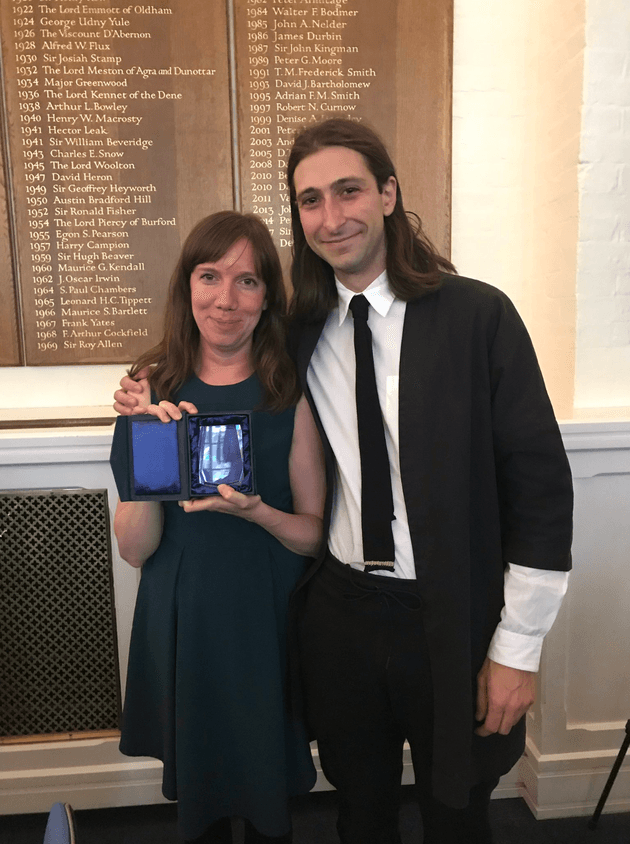 Maeve McClenaghan and Charles Boutaud with their award on Thursday night
Maeve McClenaghan and Charles Boutaud with their award on Thursday night
Working with local journalists across the country we counted at least 800 people who had died while homeless in an 18 month period, an average of 11 people a week. We worked to tell the stories of those that died and opened up our findings to our Bureau Local network, who reported out the specific data for their own areas. Collaborators included the Bristol Post, The Ferret, The Detail, The Yorkshire Post, Leeds Live, The Argus, the Belfast Telegraph and others.
During our reporting we opened our database to the ONS, who used the information to develop their own methodology, allowing them to analyse death certificates and produce their own estimates, which suggested the number of those dying had increased by 24% in 5 years.
The ONS’s work was also recognised at the Royal Statistical Awards, with their team winning the award for Excellence in Official Statistics.
Earlier this week McClenaghan was named as one of Hatch’s Unsung Heroes for Homelessness, also for her work on the Dying Homeless project.
“A wake up call”
For a year, Maeve McClenaghan attended funerals and inquests, interviewed family members, collected coroner’s reports, shadowed homeless outreach teams and compiled Freedom of Information requests. She travelled up and down the country to Manchester, Glasgow, Brighton, Leeds, Bradford, Stafford, Milton Keynes and beyond, interviewing scores of people.
She also coordinated dozens of journalists across the UK to make sure we covered as much of the country as possible, and more than 40 members of our Bureau Local network dug into the situation in their areas, providing details and names as they heard them. We also revealed how rarely these deaths were officially investigated.
Over the year the project repeatedly set the news agenda, provoked debates in parliament, and prompted more than 20 MPs to speak out on the issue. We were invited to present the findings to the APPG on Homelessness and our work was shown to the UN Special Rapporteur on Poverty. We also presented it at various expert-led conferences.
James Brokenshire, the secretary of state for housing, called our findings “utterly shocking” and in summer the government’s Rough Sleeper Strategy recommended, for the first time, that homeless deaths be reviewed. Now, several councils, including Brighton & Hove, Oxford, Malvern and Leeds have said they will undertake their own reviews into deaths, while others, such as Haringey council, have put in place new protocols to log how and when people die homeless, a move we were told was directly prompted by our work.
The work was also received positively by those working with and for homeless people. Several organisations called it a wake-up call. The Big Issue called the work pioneering and said: “To its huge credit, the Bureau’s research extensively looked into the stories of every one of those deaths.” It named the Bureau Local as one of its Top 100 Changemakers for 2019.
Crisis UK said: “It is difficult to overstate the importance of the Dying Homeless Project, which has shed new light on a subject that was ignored for too long.'” Our findings were also picked up and used by Comic Relief for Red Nose Day 2019, to help raise vital funds for UK homeless services.
Clear we wanted to hand over our work in a responsible way, we have been working with the Museum of Homelessness, who have taken over collation of the stories of those that have died.
The work was also shortlisted for the Orwell Prize, the Amnesty Media Award for Best Investigation and the British Journalism Award for Best Campaign, among others.
McClenaghan is now writing a book about homelessness and those that have died while homeless, which will be published by Picador in 2020.
Become part of the Bureau Local — our collaborative network of reporters and citizens — and tell stories that matter.
Find out more
